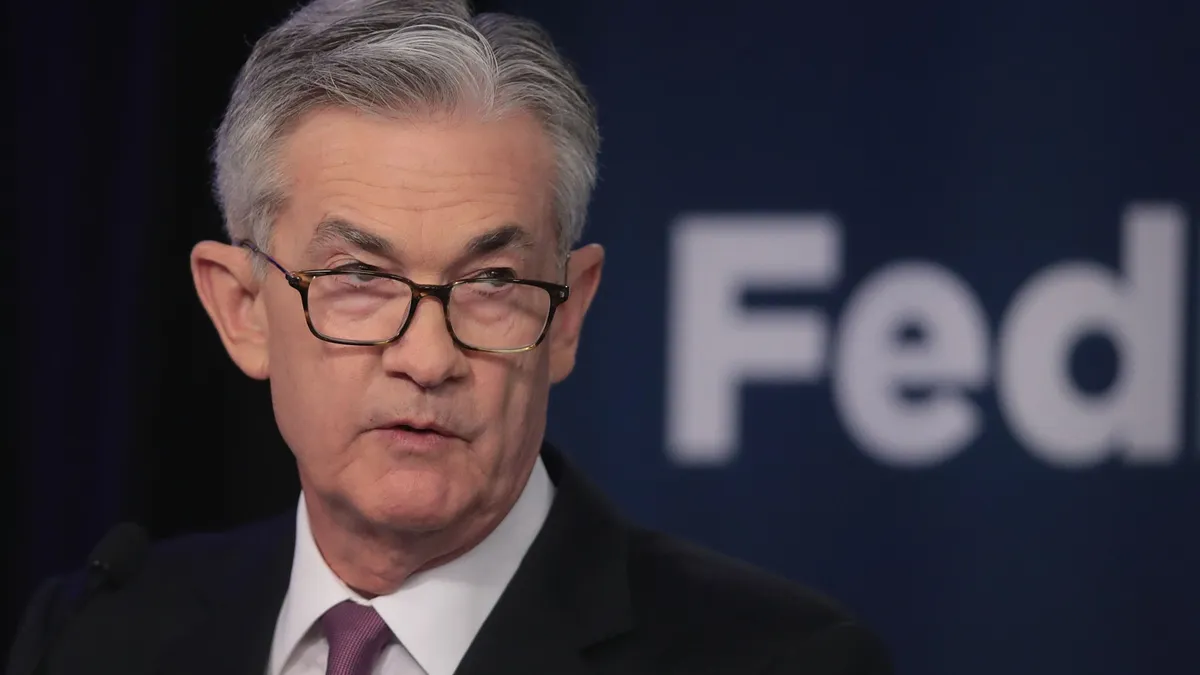The U.K. cross-border payments company Wise has its sights set on growth overseas by taking market share from U.S. banks.
The London-based company, which landed stateside in 2015, has hired 700 U.S. employees over the past eight years, including 180 at a base in Austin where it’s planning to expand by about 50% next year, Wise interim CEO Harsh Sinha said in an interview this week. The company had a total headcount of 5,353 as of the end of September, according to a financial report this month.
Sinha was the company’s chief technology officer until being catapulted into the additional CEO role in May after Wise’s then CEO, Kristo Kaarmann, said he would step away on an extended paternity leave.
Wise is targeting banks to make inroads in the U.S., by way of offering cheaper and faster online cross-border payments services to clients who are consumers and small businesses, Sinha said.
To use Wise’s services, a customer sends money digitally from a bank account to Wise, using domestic payment rails such as ACH or RTP, and then Wise transfers the money to other countries’ local payment systems on behalf of the customer, bypassing the legacy correspondent bank system.
Wise’s fees vary by country, as is the case with rivals. Its blended fee rate across those markets is less than 1% at 67 basis points, Sinha said. Globally, the cost for migrants sending remittances is about 10 times that amount at 6.2%, according to the World Bank.
“We are starting to see a lot more people realize how much their banks are charging them,” Sinha said. “And the service quality is not that great,” he added, noting that banks often take two to five days to deliver the money. That’s versus up to two working days at Wise, according to its web site. “Our biggest places where we get our customers from continue to be the banks,” he said.
In addition to its money transfer services, Wise has begun offering customers the option to store their funds in accounts with the company, further encroaching on banks’ turf.
A spokesperson for the American Bankers Association declined to comment on banks’ practices in the cross-border arena or the competition.
Making inroads in the U.S.
Overall, the cross-border payments market is about a $22 trillion market, with about half of that, or $11 trillion, being moved by large corporations, $9 trillion flowing from small and mid-sized businesses and $2 trillion derived from individual consumers, Sinha said.
Wise has pushed U.S. lawmakers to call for more disclosures with respect to cross-border payments, so that it becomes clearer to users how much they’re paying for services, Sinha said.
The company has also urged the U.S. government officials to grant non-bank fintechs like Wise more privileges currently reserved for U.S. banks, he said. For instance, Wise would like a direct connection to the two U.S. real-time payments systems, the bank-owned RTP, and FedNow, the Federal Reserve’s recently launched system, he explained.
In response to that suggestion, the ABA spokesperson referenced a 10-page letter to the Fed written by it and other bank associations in 2021. It recommends guidelines for how the Fed should evaluate any such non-bank applicants and the safeguards that should be in place for “enhanced scrutiny.”
Regardless, Sinha is confident Wise can expand its cross-border payment services in the U.S. as businesses gravitate to international e-commerce and as consumers become more mobile. “We’ve continued to grow our presence because it’s one of our fastest-growing markets,” Sinha said of the U.S. “It’s a very large market.”
Wise’s recent growth
For the six months ended Sept. 30, Wise reported that its North American revenue shot up about 21%, which was more than its home U.K. market’s approximately 18% revenue growth, but it was still less than the 39% growth in the Asia-Pacific market. Revenue in each of those markets was comparable.
Gross profit for the six-month period nearly doubled over the year-earlier period as the number of active customers increased by about 30% to 7.2 million.
Notably, Wise isn’t targeting the clientele of legacy remittance players such as MoneyGram and Western Union because those businesses have significant in-person offerings at outlets worldwide. Their “online business, I would say, is not as competitive,” Sinha said.
Wise is a “champion” of the international effort to reduce the cost of remittances worldwide, Sinha said. The United Nations has a goal to reduce cross-border remittance expense paid by migrants globally to less than 3% of the transaction by 2030.
The U.N. objective mainly turns on reducing “the fees that banks and other large institutions are charging,” Sinha said. “At the current rate that we are going, and the fees that we are seeing being charged to consumers and small/medium businesses, I don’t think we’ll hit the 2030 goal.”




















